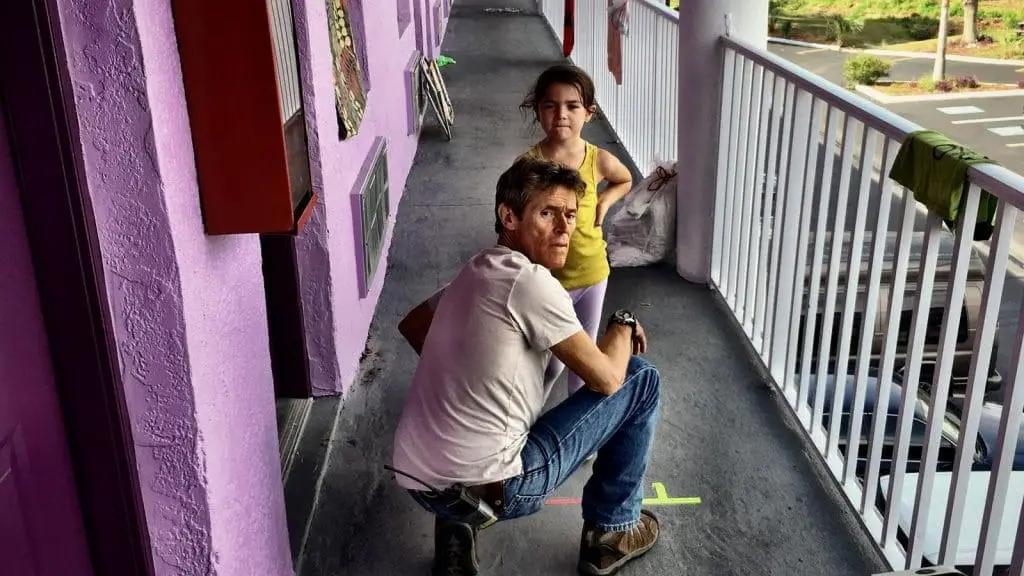
Films that document the filmmaking process often suffer from identity crises. Too often eager to present themselves as “documentaries,” they self-consciously remind themselves, and those watching them, that they are nothing more than extended electronic press kits.
Les Blank’s Burden of Dreams, however, is a film that transcends traditional behind-the-scenes fare and becomes a layered, sophisticated documentary unequaled in the realm of films about filmmaking. It is equal parts character study (Herzog), Travelogue (Peru), and National Geographic Special (Natives Indigenous to Peru); it is a wholly original film that could very well be the greatest feature length documentary ever made about the making of a motion picture.
Having spent five weeks on location with Werner Herzog and crew while they strove to overcome Sisyphean obstacles to produce Fitzcarraldo, Herzog’s landmark 1982 film about a tenacious dreamer who aspires to bring the opera to the jungle, Blank was thrown into an environment ripe with turmoil. From on-set fights to attacks by natives and the toll nature takes on its human visitors, Blank shows considerable restraint by refusing to allow the sensationalism built into a project like Fitzcarraldo to overwhelm him. A confident filmmaker, he seems to rely on intuition as much as intellect and structures the film around his curious, wandering eye, and as a result has produced a film as much about the Peruvian jungle as it purports to document the making of Fitzcarraldo.
Blank is introduced to an ancient world of natives confronted with the very modern art of filmmaking. The natives, seemingly soft spoken, withdrawn people, are plunged into another world by Herzog and crew. They are housed in camps and form temporary societies outside of their traditional, small party groups. As the film’s schedule grows ever longer, the natives begin to quarrel with one another, and Blank presents us with a fascinating sociological exploration of how they cope with this strange world the outsiders have suddenly hoisted upon them.
While a good portion of the film is dedicated to the Amazon and its natives, what fascinates us most is Herzog’s determination to realize a dream as grand as the ambitions his titular character displays in Fitzcarraldo.
Like Fitzcarraldo, Herzog’s goal is to move a 320-ton steamship over a small mountain, a task many believe impossible, so much so that the first engineer assigned the task of moving the ship eventually walked off the film, claiming that the project had a 70% possibility of ending with dozens of fatalities.
Yet Herzog remained steadfast in his dedication to see this project through, and he’d allow nothing—his cast and crew’s waning enthusiasm, Kinski’s megalomania, warring natives, and the environment—to stand in his way. At one point, after original stars Jason Robards and Mick Jagger left the film, Herzog was forced to return to his homeland and reconsider his options.
“When I came back to Germany and I tried to hold all the investors together,” Herzog tells Blank in Burden of Dreams, “they said to me, ‘Well how can you continue, can you … do you have the strength, or the will, or the enthusiasm … ?’ And I said, ‘How can you ask this question … if I abandon this project I would be a man without dreams. And I don’t want to live like that. I live my life or I end my life with this project.’”
Herzog’s determination to capture his vision on film transcends tenacity and approaches megalomania, and Blank presents him in a way that is neither sympathetic nor damning. Herzog, as seen through Blank’s lens, is a dreamer more ambitious than his Fitzcarraldo character. He is a man who has set out to accomplish a goal, to share his dreams with others, to dramatize the importance of dreams, and his enthusiasm is admirable. Yet when the environment’s overwhelming presence, as well as the crew’s limitations, begin to overshadow the production, Blank shows us Herzog’s continually devolving mindset. At one point he states that everything is obscene and in a state of misery—the jungle, the birds, etc.—and we are given an understated glimpse into the inner workings of a mind that has constantly blurred the line between genius and madness.
In the end Les Blank shows more restraint than Werner Herzog could ever display. Given the circumstances, Burden of Dreams could have been a movie more concerned with sensationalism than depth, but Blank tempers the madness with a quiet, sometimes meandering look at the trials and tribulations of a complicated film shoot and the environment in which it was made. And as a result, he has given us a superlative documentary that compliments Herzog’s movie in a way that no other behind the scenes film has ever done; Burden of Dreams serves as an alternate, non-fiction look into the world of a devout dreamer and the tolls those dreams take on him and those around him.
To augment the story of Fitzcarraldo, The Criterion Collection has included an 80-page booklet featuring excerpts from Les Blank’s and collaborator Maureen Gosling’s journals, written at the time of the making of Burden of Dreams, as well as a 38-minute, recently recorded interview with Werner Herzog about Burden of Dreams and the making of Fitzcarraldo. Most notably, however, is the inclusion of Werner Herzog Eats His Shoe, a 20-minute short film Blank made in 1980, about Herzog’s extremely entertaining fulfillment of a bet he’d made with filmmaker Errol Morris.
